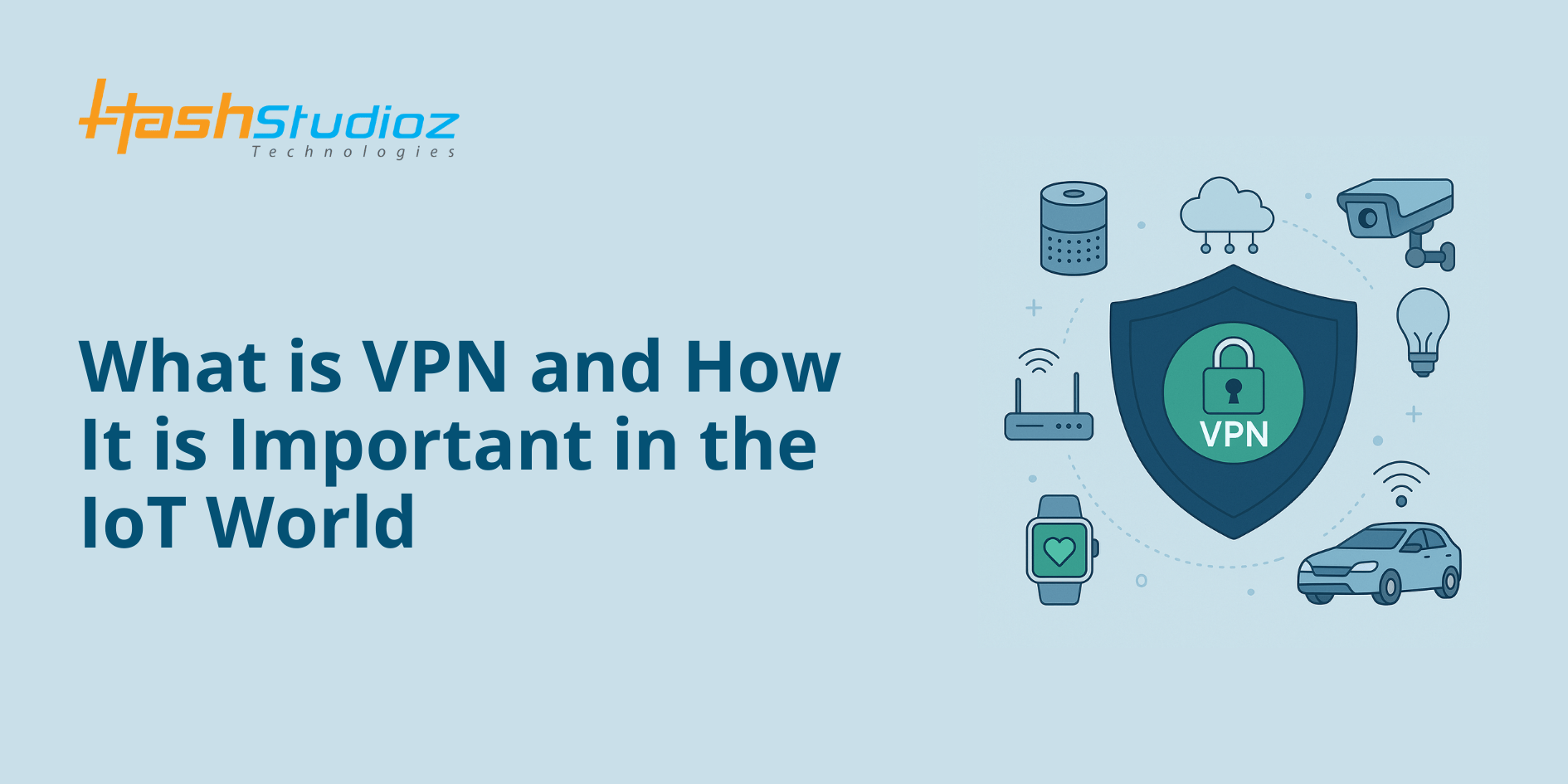Today where billions of devices are connected and constantly exchanging data, ensuring secure communication has become more critical than ever. This is especially true for the Internet of Things (IoT), where everything from smart thermostats to industrial machines is part of a vast interconnected web. One powerful tool that bolsters this digital defense is the VPN (Virtual Private Network). But what exactly is a VPN, and how does it fit into the ever-expanding world of IoT? Let’s dive in.
Table of Contents
VPN and IoT
A Virtual Private Network (VPN) is a secure tunnel between your device and the internet. It encrypts your online activity, masks your IP address, and protects your data from eavesdroppers and cyber threats.
On the other hand, the Internet of Things (IoT) refers to the network of physical devices ranging from home appliances to industrial systems connected to the Internet and capable of collecting and exchanging data.
With the increasing adoption of IoT in homes, cities, and enterprises, security and privacy have become major concerns. Devices often operate unattended and transmit sensitive information, making them prime targets for cyberattacks.
Understanding VPN
A. How VPNs Work
VPNs act as a secure intermediary between a device and the internet. When you use a VPN:
- Your data is encrypted, making it unreadable to anyone who intercepts it.
- Your IP address is masked, hiding your location and identity online.
This encrypted tunnel ensures that even on unsecured networks, your information remains private and protected.
B. Types of VPNs
There are mainly two types of VPNs used in various contexts:
- Remote Access VPN
- Allows individual users to securely connect to a private network from a remote location.
- Ideal for IoT developers and maintenance teams working offsite.
- Site-to-Site VPN
- Connects entire networks at different locations.
- Useful for large-scale IoT systems deployed across multiple facilities or branches.
C. Benefits of Using a VPN
- Enhanced Security: Prevents cyberattacks and unauthorized access by encrypting data.
- Bypassing Geo-Restrictions: Allows IoT systems to access cloud services regardless of regional restrictions.
- Improved Privacy: Keeps sensitive data out of the hands of advertisers, ISPs, and malicious actors.
The Role of IoT in Modern Technology
A. Definition and Examples of IoT Devices
IoT includes a wide range of devices such as:
- Smart home appliances (e.g., smart lights, thermostats)
- Wearable health trackers
- Industrial sensors
- Connected vehicles
- Smart city infrastructure (e.g., traffic lights, surveillance)
B. Growth and Impact of IoT in Industries
IoT is transforming industries like:
- Healthcare: Remote patient monitoring
- Manufacturing: Predictive maintenance
- Agriculture: Smart irrigation systems
- Logistics: Real-time fleet tracking
C. Security Challenges in IoT
Despite its benefits, IoT faces several security vulnerabilities:
- Outdated or unpatched software in devices
- Weak default passwords
- Insecure communication protocols
- Risk of data breaches and unauthorized control over devices
Importance of VPN in the IoT Ecosystem
A. Securing IoT Communications
VPNs play a vital role in strengthening IoT security:
- Data Transmission Protection: VPNs encrypt all data transmitted between IoT devices and servers, shielding it from interception.
- Device Authentication: Ensures only verified devices can access the network, reducing the risk of spoofing or unauthorized access.
B. Role of VPNs in IoT Development
For companies building or managing IoT systems, VPNs offer:
- Secure Remote Access: Developers and support teams can access devices or servers from anywhere without compromising security.
- Isolated Development Environments: VPNs help create safe, isolated networks for testing and development of IoT applications.
C. Real-World Examples
- Smart Grid Systems: Utility providers use VPNs to monitor and control grid components securely.
- Fleet Management Solutions: VPNs protect GPS and vehicle data from tampering or leaks.
- Smart Factories: VPNs ensure that production data remains confidential and is only accessible to authorized personnel.
Conclusion
VPNs are no longer just tools for secure internet browsing they are becoming a backbone of security in the IoT world. As billions of devices continue to come online, protecting communication channels and data flow is imperative.
VPNs offer a practical, scalable, and effective solution to safeguard IoT networks from cyber threats, unauthorized access, and data leaks.
As we move towards a more connected future, securing that future must be a top priority. If you’re managing IoT systems or developing IoT solutions, now is the time to consider integrating VPN solutions to enhance your security posture.
Ready to Secure Your IoT Infrastructure with a VPN?
At HashStudioz Technologies, we specialize in building secure, scalable, and smart IoT solutions. Our experts can help you integrate robust VPN configurations tailored to your specific IoT use cases ensuring encrypted communication, seamless remote access, and end-to-end device protection.
In a world where billions of devices are constantly connected, privacy and security are not optional they’re essential.
Let’s make your IoT ecosystem secure by design.
👉 Contact HashStudioz Today to get started with secure IoT development.

